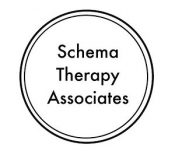What is Psychotherapy and Schema Therapy?
Counsellors, psychotherapists and Schema Therapists aim to help people lead lives that are more resourceful and more fulfilling.
Sometimes people come to counselling or psychotherapy to deal with particular problems such as depression, stress, anxiety, addiction or eating disorders. Individuals also seek therapy to deal with the emotional impact of events in the past. These can sometimes be events in the distant past such as separations or deprivations in childhood or even being mistreated or abused as a child. People also seek help in psychotherapy if they become aware that particular patterns of interpersonal events (and the feelings that go with them) keep repeating in their life. This might be a situation where they suddenly get hijacked by strong feelings in ways that leads to destructive outcomes in their life, or it might be a situation where someone keeps having relationships that end up with the same unhappy feelings.
People can also seek therapy if they feel that they are not living their life to their full potential. This can take many forms, such as underachieving at work, or feeling that emotional experiences and commitments lack depth and meaning. People can also sometimes seek therapy if they feel like their own lives are not entirely real to them.
Counselling and therapy do not entail advice-giving, but rather a slow getting to know yourself through exploring your feelings and habitual (and sometimes unconscious) patterns of processing experience and relating with another. This is done through talking about events and feelings that are important to you, exploring other evidence of unconscious mental life such as dreams and daydreams and also exploring the way that individuals cope with and experience everyday life and the therapy relationship itself.
Like many modern therapists, I draw my theoretical frame from many different sources. I trained as a Jungian therapist, but I am also influenced by object relations theorists such as Fairbairn, Winnicott and more especially Bowlby. Recently I have also qualified in a cognitive therapy: Schema Therapy. My particular interest is, not just in resolving symptoms, but also in modifying deeper structures in the personality that support the there-occurrence of symptoms. Schema Therapy is an evidence-based therapy that is gaining international acceptance as an effective intervention for a range of personality disorders.
I view therapy as a collaborative process. I know something about feelings, personality development, the conscious and unconscious mind and so on; but you are the expert on you. Only you know what things feel like inside of yourself, what kinds of thoughts you think and what you wish for and desire.

